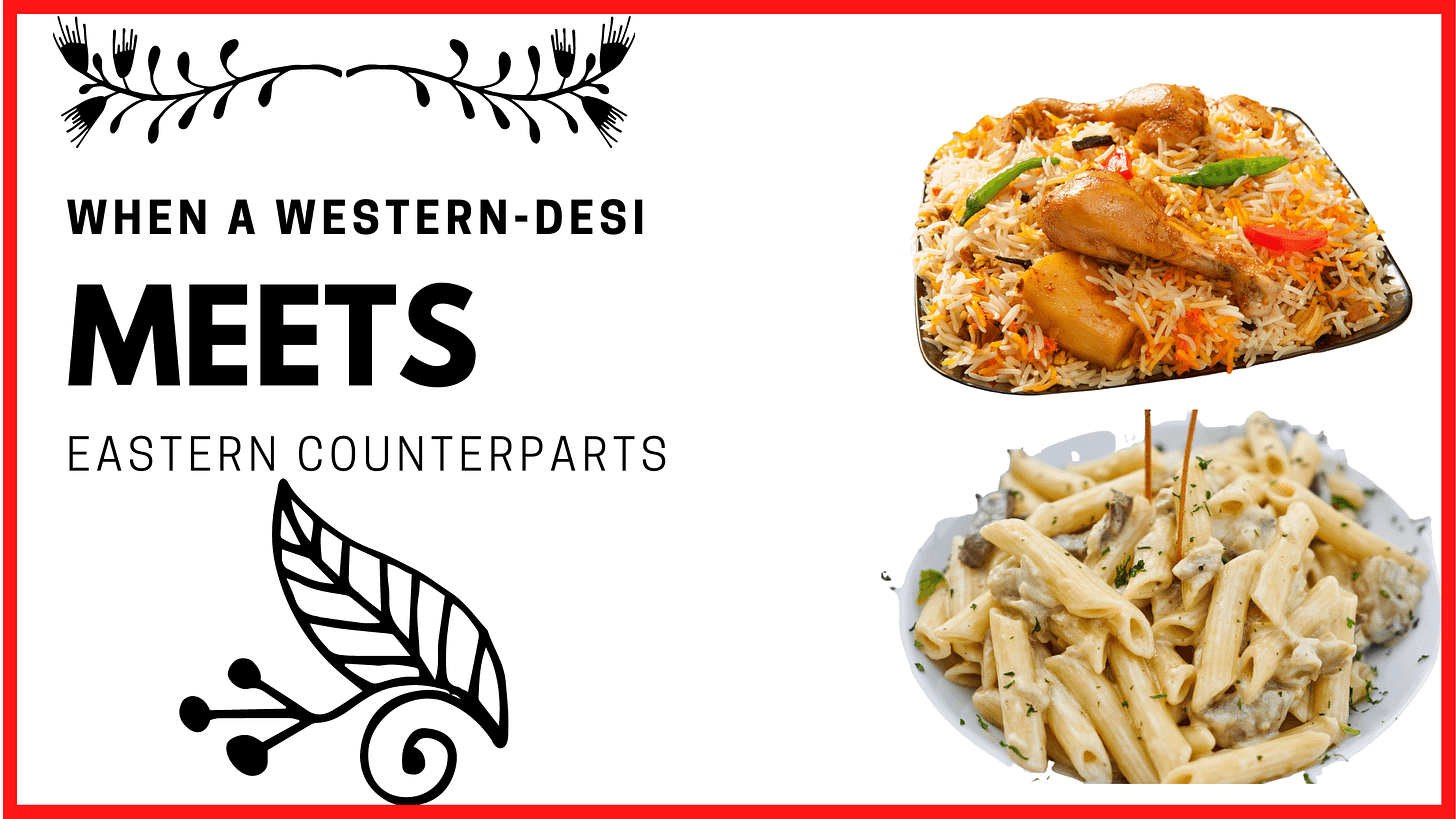LOVE-HATE-LOVE RELATIONSHIP WITH HERITAGE
WHEN A WESTERN-DESI MEETS EASTERN COUNTERPARTS MAGIC ENSUES
I have always had this love-hate relationship with my heritage, on one side I loved my ancestry for things like food, culture, history and on the other side I hated the fact that people who had the same heritage or background as mine - not always, but often, at least in my personal experience, tend to be nosy, gossipy, materialistic and very set in their ways.
Therefore, very early on in my life I subconsciously developed pre-conceived notions about people who looked like me, but had an accent. When I think about it now retrospectively, as they say hindsight is 20/20, I think, for the longest time, I subconsciously refrained from getting too close to or befriend people from the sub-continent, of course my parents had Indian heritage but to me it was not their defining feature, they were just my parents who spoke with an accent and had materialistic tendencies.
However, lately, I have been reading up and researching the persecution faced by people like my parents and grandparents in their countries for simply being who they were and the faith they subscribed to. The persecution appears to continue even today. Every other day on twitter one sees videos from India, where a Muslim man is lynched or beaten for simply being Muslim. There are open calls being made in India on a regular basis by right wing nationalists for businesses owned by Muslims, Muslim tradesmen, Muslim craftsmen to be boycotted, needless to say this is heartbreaking.
Amidst this sad reality of India, going from being the ‘world’s largest democracy’ to an oppressive state, there is a ray of hope – India’s Muslims on social media platforms. The current generation of Indian Muslims who have access to social media aren’t just educated but are also opinionated, articulate, tech savvy and in many ways have the skills to counter the Islamaphobia machinery that seeks to threaten their very existence. In the last couple of months, I have had the opportunity to interact with some of these people and I must admit I was a bit nervous at first to interact with them, because I did not necessarily have an in-depth understanding of Indian or for that matter Sub-Continent’s political landscape. It would be an understatement to say that these people were more than welcoming and gracious to me.
I started my interactions with an open mind, I wanted to learn more about the people of a country that my parents came from, where my ancestors lived, I wanted to understand how these people feel and think about their current political climate where their peers from the majority community demonise them on a recurring basis. Through these interactions I learnt that these people want nothing more than to live in peace and harmony in their own country, they are not demanding or seeking anything that isn’t already granted to them by the Indian constitution in theory, all they want is that these rights which are guaranteed to them by their country’s constitution to translate into ground reality, whereby they can focus on real issues of education, jobs and careers rather than justify their existence every single day.
One of the by-products of these interactions, is that I have more empathy for my folks now, now I understand why at times they might have come across as materialistic, now I appreciate the fact that they come from a country where they might have been subjected to these micro aggressions and when you have lived or live in a society where you have to substantiate your very existence on a regular basis – tangible, materialistic things become important to you, as these give you a sense of purpose, a sense of achievement.
Without going on a philosophical tangent, I would say this - the last two months have been an eye-opening experience for me personally, I learnt that sometimes when we talk about persecution, we think of countries ruled by dictators, but in reality, that is not always the case, in reality people are being persecuted across the globe including in the so-called secular democracies. The degree of state sanctioned persecution may vary, but nevertheless any persecution that is overlooked or is actively promoted by a state is reprehensible, it should be condemned by one and all.
Therefore, it is my personal view, that those of us who live in the civilised world and if have the time, platforms, influence, no matter the reach, must amplify voices of the persecuted and marginalised, because as Edmund Burke said ‘All that is required for evil to triumph is for good men to do nothing’



